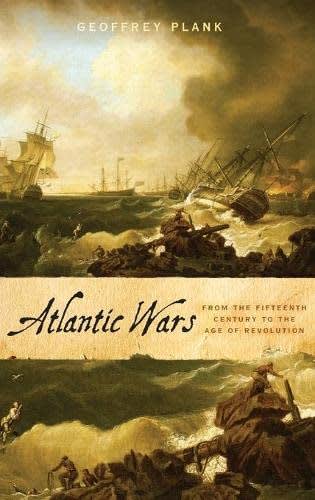
Atlantic Wars
From the Fifteenth Century to the Age of Revolution
"Atlantic Wars explores how warfare shaped human experience around the Atlantic from the late Middle Ages until the nineteenth century. Military concerns and initiatives drove the development of technologies like ships, port facilities, fortresses and roads that made crossing the ocean possible and reshaped the landscape on widely separated coasts. Forced migrations made land available for colonization, and the transportation of war captives provided labour in the colonies. Some wars spread to engulf widely scattered places, and even small-scale, localised conflicts had effects beyond the combat zone. Wars in Africa had consequences in the colonies where captives were sold. Europeans and their descendants held the upper hand in combat on the ocean, but in the early modern period they never dominated warfare in Africa or the Americas. New ways of fighting developed as diverse groups fought alongside as well as against each other. In the Age of Revolution enslaved Africans, indigenous Americans and colonists in various places rejected cross-cultural alliances and the prevailing pattern of Atlantic warfare. New military ethics were developed with important implications for the governance of the European empires, the security of the new American nation-states, the legal status of indigenous peoples, the future of slavery and the development of Atlantic economy. The pervasive influence of warfare on life around the ocean becomes apparent only by examining the Atlantic world as a whole. "--
Atlantic Wars
From the Fifteenth Century to the Age of Revolution
